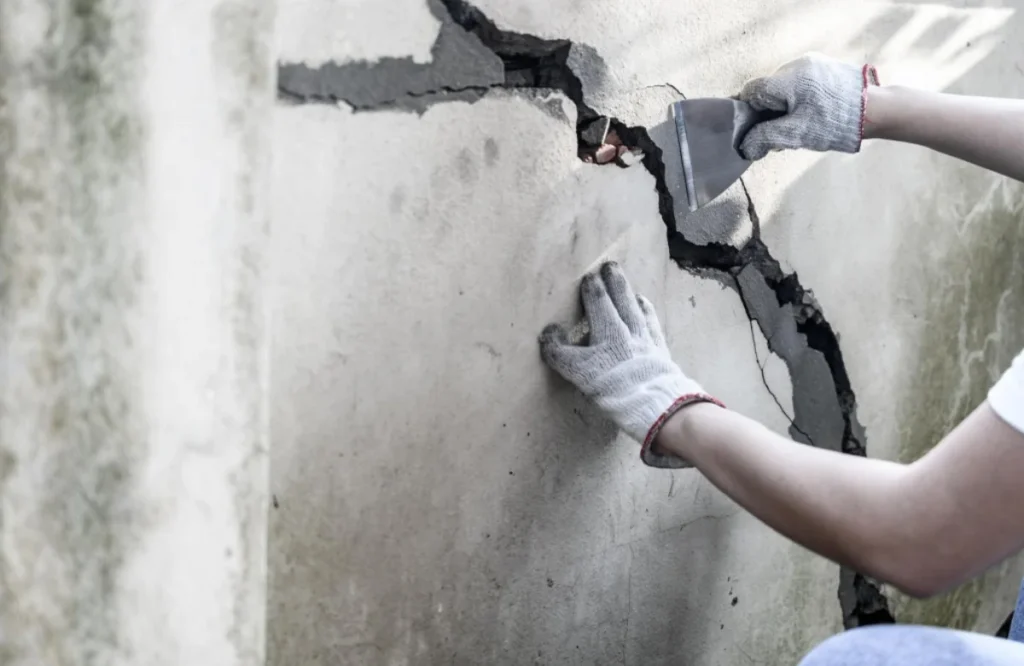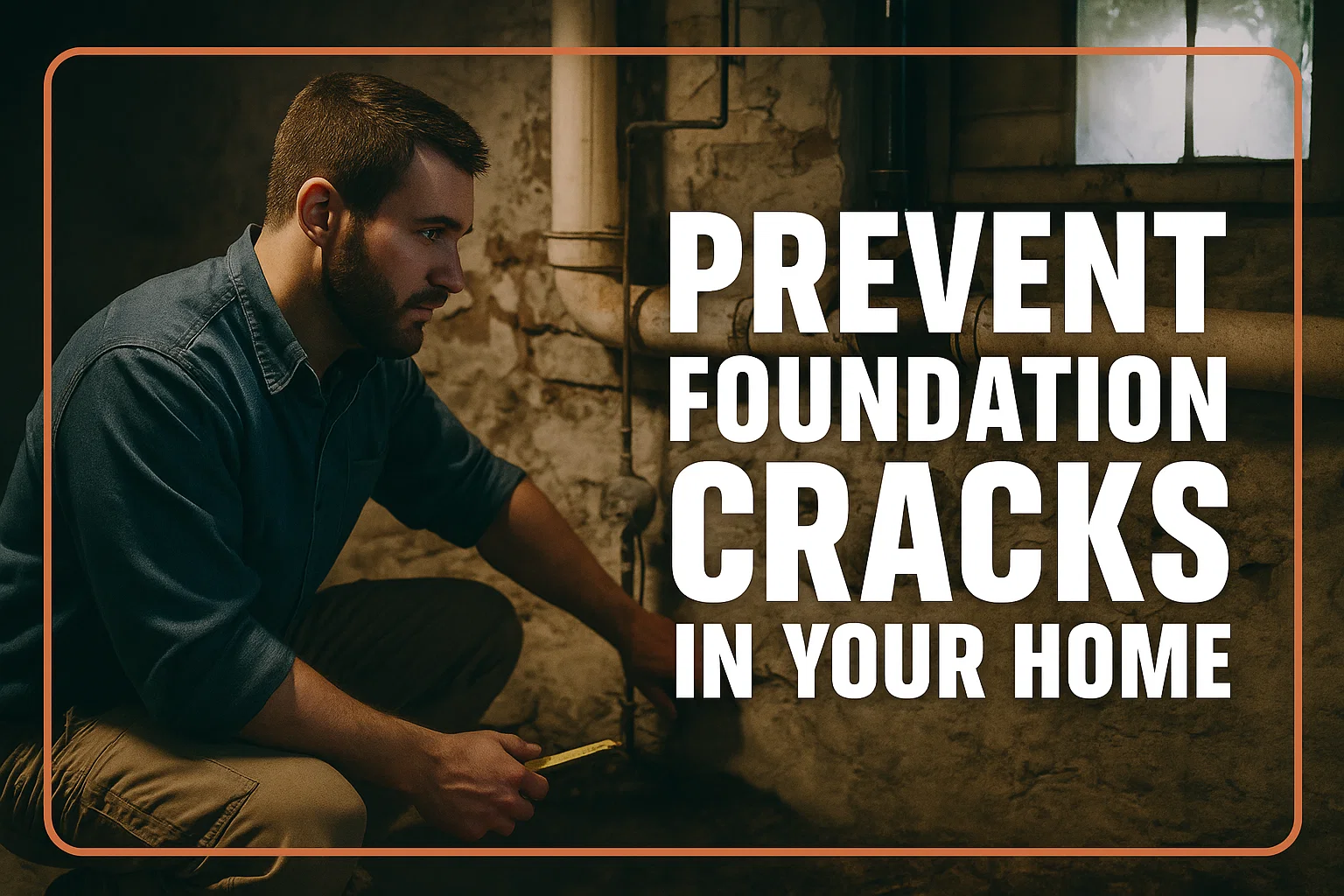The foundation of your home is one of the critical areas of your home. As long as it remains firm, the entire house remains secure, firm and stable. However, as cracks set in, there are larger problems that might develop that would take a lot of time and money to remedy.
The positive thing is that simple habits, as well as clever care may help avoid the majority of foundation cracks. You would be able to maintain your home’s stability over several years by knowing what to look for and the causes. This is the guide that is going to take you through all that you need to know simply and easily.
Why Foundation Cracks Happen
Cracks in the foundation do not occur suddenly. They tend to begin as a result of either the soil changes or the lack of proper water management of the place that surrounds your home. The most frequent causes are the following:
- Soil that expands when wet and shrinks when dry
- Poor drainage around the foundation
- Heavy rain, flooding, or plumbing leaks
- Foundation settling over time
- Freezing and thawing cycles
The way to prevent cracks is first to understand why they occur.
Where Foundation Cracks Commonly Form
The cracks appearing on the foundation may be situated in various areas and each area may depict something different. They are mostly found at the following places:
- Basement walls – vertical or diagonal cracks
- Concrete slabs – hairline cracks across the floor
- Exterior foundation walls – cracks that start small but grow over time
- Areas near windows or door frames – signs of foundation settling
What you know when and where to check makes it easier to avoid early warning of the occurrence of problems within the foundation of your home, before they develop into serious cases.

How to Prevent Foundation Cracks in Your Home
The trick to keeping your foundation safe is not difficult though it does necessitate regular care. This part is very detailed and, as such divides steps, tips and habits to be followed into the main. These concepts also help to avoid foundation settling, problems with the foundation of houses, as well as the settlement repair of a house at a later stage which may be very expensive.
1. Control Water Around Your Home
The largest factor that results in a crack in the foundation walls is water. You aim to prevent water from the foundation of your house.
A. Maintain Gutters and Downspouts
When gutters are clogged, water will overflow on the side hence wetting the soil around your foundation.
- Clean gutters at least twice a year
- Make sure downspouts push water 4–6 feet away from your home
- Add extensions if needed
B. Fix Poor Drainage
If water often pools near your house, the soil stays too wet and expands.
- Make sure your yard slopes away from your home
- Add drainage channels or French drains
- Repair any broken gutter sections
C. Watch for Plumbing Leaks
A hidden leak can soften the soil under your house and cause foundation settling.
- Check pipes in the basement
- Watch for damp basement walls or musty smells
- Call a plumber if anything seems off
2. Keep the Soil Moisture Balanced
The swelling and shrinking of the soil that results from extreme moisture changes will destroy your foundation.
A. Water the Soil During Dry Seasons
During year-long dry periods, in case you are residing in a hot or dry climate, then water the soil surrounding your house.
- Light watering is enough
- Don’t soak the ground
- Keep the moisture level steady
B. Avoid Overwatering Plants Near the Foundation
Plants need water, but too much water too close to the house can cause foundation cracks.
Water is required by plants; however excessive water too near the house will lead to cracks in the foundation.
Move heavy-watering plants at least 3 feet away.
3. Protect Your Foundation From Tree Roots
Roots of trees may either attract moisture out of the soil or press the foundation.
- Plant big trees at least 20 feet away
- Add root barriers if a tree is closer
- Trim roots when needed (done by professionals)
4. Seal Cracks Early Before They Grow
Even little cracks might not seem like anything serious, but they will become a significant issue.
- Use concrete caulk for small cracks
- Hire a foundation expert for diagonal or widening cracks
- Repair cracks quickly to prevent water from entering
It is among the simplest methods of ensuring that the foundation problems in homes do not escalate further.
5. Check Your Foundation Regularly
It should be your routine to walk around your house at least once a year.
Look for:
- Hairline cracks
- Crumbling concrete
- Gaps in window or door frames
- Uneven floors
- Sticking doors or windows
Catching issues early reduces how to fix foundation issues later.
6. Improve Yard Grading
The yard of your house should face down. This helps to avoid having rainwater pool by the base of your foundation.
- Aim for at least 6 inches of slope over 10 feet
- Add soil where needed
- Don’t stack mulch too high against the foundation
7. Install a Sump Pump or Waterproofing System
If you have a basement, water control is a big priority.
- Sump pumps pull water out of the basement
- Interior waterproofing protects walls
- Exterior waterproofing shields the entire foundation
This reduces foundational fix costs in the future.
8. Know When to Call a Professional
Some foundation problems are too serious for DIY repairs.
Call a foundation expert immediately if you notice:
- Cracks wider than 1/4 inch
- Horizontal cracks in basement walls
- Bowing or leaning walls
- Water seeping through cracks
- Significant sagging in floors
These issues may require basement wall bracing or major structural repair.
Benefits of Preventing Foundation Cracks
1. Saves You Thousands in Repairs
Foundation repairs can be expensive. Preventing cracks protects your wallet and avoids big repair bills like:
- Basement wall bracing cost
- House settling repair
- Foundation stabilization

2. Keeps Your Home Safe and Stable
A strong foundation means:
- Fewer structural issues
- Safer living conditions
- Less movement in walls and floors
3. Protects Your Home Value
Homes with foundation cracks often lose value. Preventing cracks helps your house stay:
- Strong
- Attractive
- Easier to sell
Tips for Maintaining a Crack-Free Foundation
Here are simple habits you can follow:
- Check your gutters after big storms
- Watch for standing water around the home
- Inspect your basement twice a year
- Keep heavy trees away from your foundation
- Seal small cracks when they appear
These steps can greatly reduce home foundation problems and slow down foundation settling.
Conclusion
Foundation cracks can be scary, but they’re often preventable. With smart water control, regular inspections, and simple maintenance habits, you can keep your home safe and strong. A healthy foundation means fewer repairs, more peace of mind, and a home that lasts for many years.
To explore more, visit LaPans Waterproofing.
FAQs
Most cracks start because of soil movement, water pressure, or foundation settling.
Yes, hairline cracks are common, but you should still watch them for growth.
Keep gutters clean, fix drainage problems, and make sure water flows away from your home.
If the crack is wider than 1/4 inch or growing quickly, call a professional.
Yes, large roots can shift soil and cause foundation movement.







